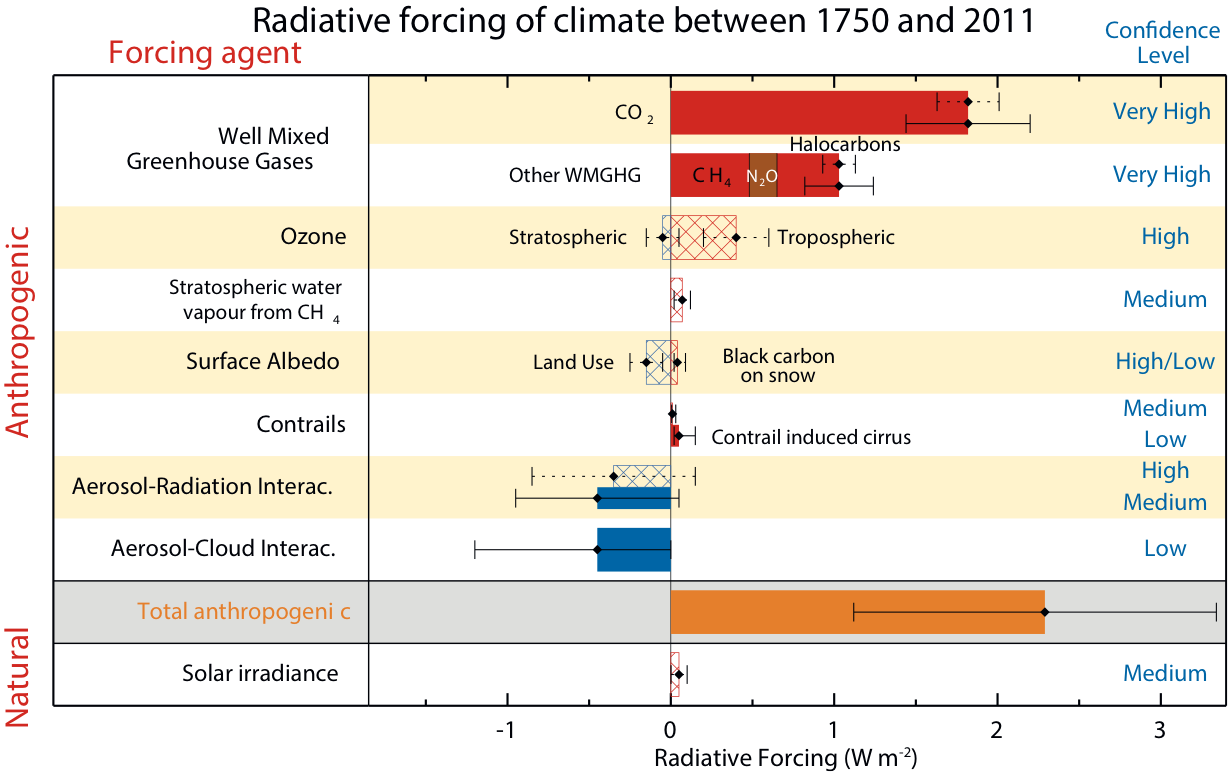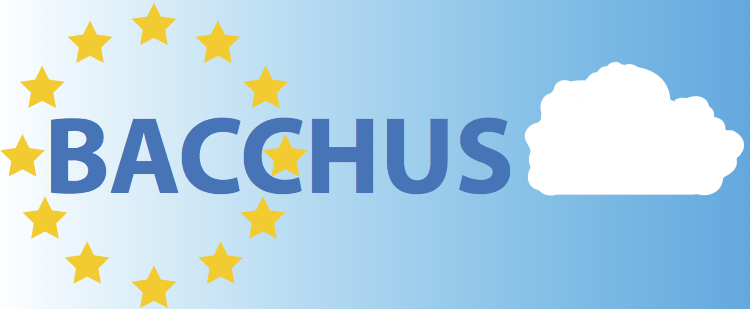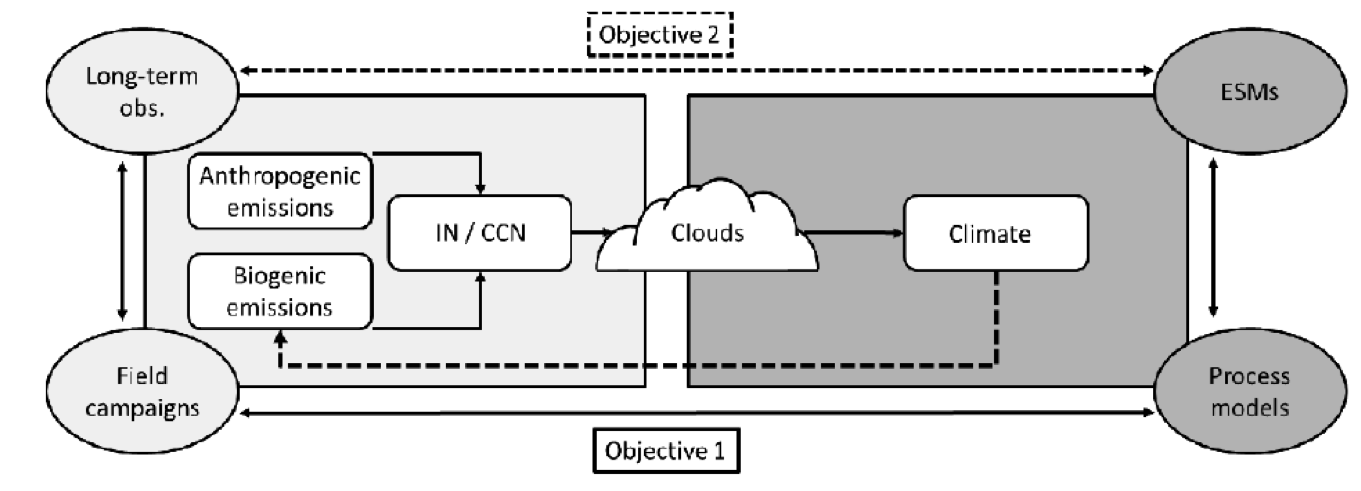
|
The challenge
Clouds are a very important, yet not well understood feedback factor in climate change and they contribute to the
effective radiative forcing (ERF) from aerosol-cloud interactions
(ACI). The uncertainty of this radiative forcing is larger than
for any other forcing agent (greenhouse gases, ozone, contrails,
etc.). Additionally, feedbacks between the terrestrial and marine biosphere and the atmosphere
involving ACI may play an important role in regulating climate change, but their relevance remains
poorly quantified.
|
 research cluster "Aerosols and Climate" that the EU
initiated, recognising the importantce of improving climate
predications to develop sustainable policies for Europe.
research cluster "Aerosols and Climate" that the EU
initiated, recognising the importantce of improving climate
predications to develop sustainable policies for Europe.


